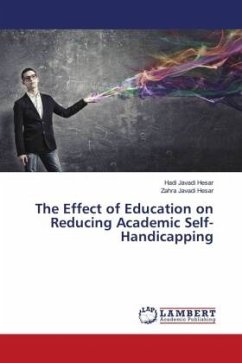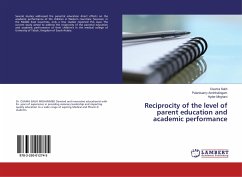Recently, researchers have become interested in the issue of students' use of self-handicapping strategies in the context of school, it seems that some students, consciously and deliberately, do not make an effort, they postpone their study until the last minute, the night before the exam. they spend their time in idleness or use other self-disabling strategies so that if their next performance is poor, these strategies and conditions and not the lack of ability and value appear as the cause of poor performance. According to Berglas and Jones, people turn to using self-disabling strategies to maintain a positive self-image, however, Smith et al expanded the use of these strategies and stated that in addition to maintaining a positive self-image, such people also these strategies are used to avoid proving a negative self-image. In various researches that have been conducted in this regard, it has been found that self-incapacitation has 3 motivational foundations that make people use these strategies.








